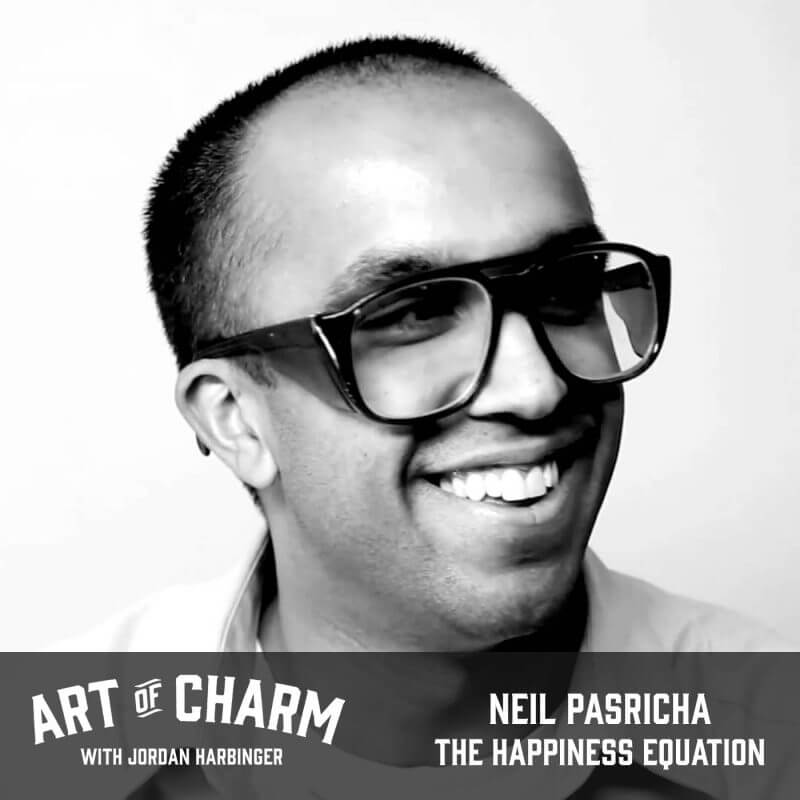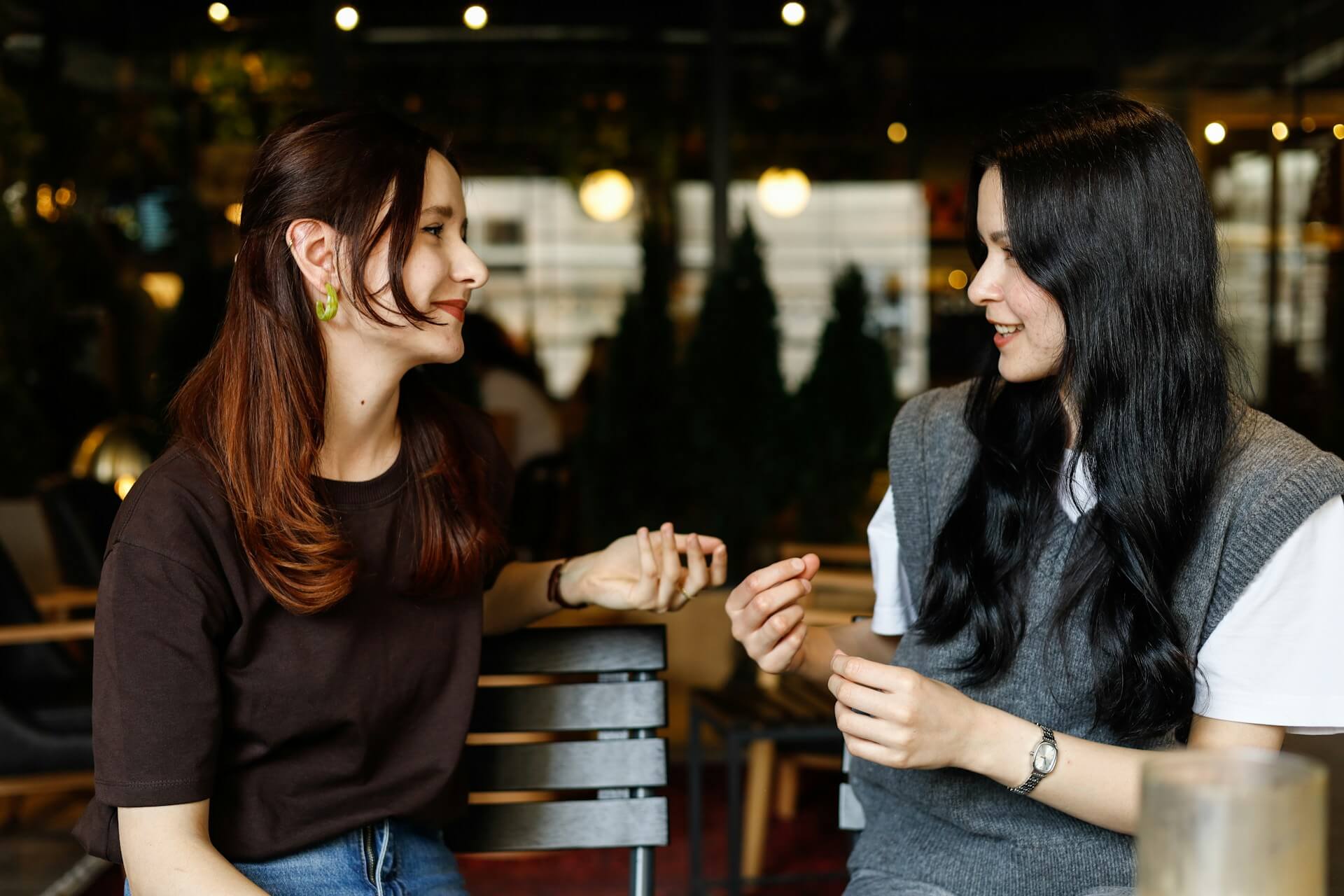Neil Pasricha (@1000Awesome), author of The Happiness Equation, shares counterintuitive and practical happiness hacks to help us elevate ourselves into greater positivity and productivity every day using real action-oriented models and frameworks to think about how we do the things we do.
The Cheat Sheet:
- The happiness model we’re taught from a young age is backwards — we should lead with happiness instead of regarding it as some kind of end-game reward for enduring the burdens of life.
- Happiness is a learnable, teachable skill — there are specific exercises you can do in just 20 minutes a day to train your brain to be happy.
- Keep just three simple goals in mind to ensure happiness.
- No matter what your pessimistic and optimistic friends tell you, the glass isn’t half-empty or half-full — it’s refillable.
- Don’t let comparison kill your joy — you’ll never be number one out of seven billion in the world at anything. Let that be a relief to you!
- And so much more…
[aoc-subscribe]
When you type “How to be” into Google, “How to be happy” is the first drop down. It’s what we want the most! A recent Harvard study showed that grads want happiness over wealth for the first time in their lives. The fact is, we’re all living busy, stressful lives full of too many meetings and not enough time.
In episode 506 of The Art of Charm, we talk to bestselling author Neil Pasricha about the nine secrets to happiness outlined in his new book The Happiness Equation: Want Nothing + Do Anything = Have Everything. Here, he’ll give us some practical exercises to help us integrate these secrets into our daily strategy.
More About This Show
Happiness seems like one of those nebulous terms that’s everywhere these days. So why should we pay attention to the latest book (out of thousands on shelves today) that promises to give us the secrets to happiness — namely Neil Pasricha’s latest, The Happiness Equation: Want Nothing + Do Anything = Have Everything?
“I think the reason it’s still so present is because we still aren’t there yet,” says Neil. “It turns out the longest study ever done on unhappiness in society [has been done by] Professor David Meyers of Hope College, University of Michigan; he’s been studying happiness in population since 1955. It turns out that 20% of people declare themselves to be happy — and it’s been the same number since the ’50s!
“Our wealth has gone up. Access to technology has gone up. Our availability of food. Our mobility. Everything’s increased. But our happiness has flatlined. It’s a nut we haven’t cracked yet.”
Neil points out that, for the majority of human history, our brains have evolved to do three things: look for problems, find problems, and solve problems. Even when news is good, we tend to squint in order to find out what kind of bad news is hiding in the fine print. It’s encoded into our DNA and it’s the reason we’ve survived thus far as a species. “I think we have to let ourselves off the hook for not being happy. We are oriented every day to look for problems. It’s how we survive.”
This orientation toward scanning for problems permeates every aspect of our daily lives, so it’s no mystery why true happiness seems so elusive for the majority of us. Like most people, Neil’s unhappiness was something he lived with and perhaps wasn’t even aware of for a large portion of life. It took a divorce and the death of a friend to wake him up to this fact and turn things around to not only figure out how to make himself happy, but how to share his findings with others.
Aside from just feeling good, how important is happiness? “Our productivity goes up 31% when we’re happy,” says Neil. “We have 37% higher sales. We’re three times more creative. We’re 40% more likely to get that promotion we’ve been gunning for than people who aren’t in a happier state. So, yeah. Happiness is worth the 20 minutes of investment it takes a day because everything you want to follow in your life technically will because you’re in a better place.”
We all know this, of course. So why does happiness seem so out of reach for so many of us? As optimists are said to think of life as a glass half full, whereas pessimists consider it a glass half-empty, Neil says we shouldn’t think of the glass as half-empty or half-full, but as refillable. “What we know now is there are specific exercises you can do in just 20 minutes a day to train your brain to be happy,” says Neil. “There are things that [Art of Charm] listeners are probably familiar with, like meditation, writing down five gratitudes, journaling for 20 minutes, going on a brisk, 20-minute walk. All of these little investments in yourself increase your happiness levels.”
The 20 for 20 Challenge
“Try to commit to doing one of these three things for 20 minutes a day. If you can do them for 20 days in a row, you’ve got a new habit,” says Neil.
Take a brisk, 20-minute walk per day. A recent study showed that these brisk walks outperform a test group on anti-depressants and another test group doing both walking and taking anti-depressants.
Journal for 20 minutes about one positive experience from your day. In another study, couples who did this exercise together were 50% more likely to stay together after three months — but it’s been proven to elevate the happiness of singles, as well.
Commit a random act of kindness per day. Out of these three challenges, this is the one shown to have the greatest impact on an individual’s happiness levels. If you can do five (or seven, if you’re hardcore) nice things for other people every week, you’re likely to feel better about who you are.
The Nun Study
The average human lifespan is about 25,000 days. Neil often asks people if they could add another 3,000 to that number, would they do it? The answer is invariably yes — and not surprisingly, happiness is the key. While it might be easy to write this off as wishfully thinking mumbo jumbo, there was actually a study done by the University of Minnesota and the University of Kentucky in which autobiographical journals written by nuns in the 1930s and ’40s were examined. These journals were split into piles based on how happy their authors seemed to be, based on the linguistic density and overall positivity of the words they used.
“Those who were in the happiest pile lived 10 extra years. Those are extra 3,000 days right there with the press of a button.”
The Secret to Never Being Too Busy Again
“The average person makes about 300 decisions a day,” says Neil. “So how do you stop being busy? I present a solution in the book called Creating Space. And to do that, you have to eliminate three things: you have to eliminate choice, you have to eliminate time, and you have to eliminate access.”
Eliminate choice. This is where you streamline your life to stop making so many decisions. Automate your route to work by using an app that helps you avoid trouble spots without expending mental effort to do so (Neil uses Waze). Make twice as much for dinner so you’ll have leftovers for the next night and you won’t have to cook as often.
Eliminate time. Neil cites this quote by historian C. Northcote Parkinson (known as Parkinson’s Law): “Work expands so as to fill the time available for its completion.” For instance, you may have a week to complete an essay, but you’ll probably wait until the night before to write it. If you reduce the time you give yourself to complete tasks, you’ll force yourself to do them more quickly.
Eliminate access. It’s not uncommon for most of us to be available by telephone, multiple email addresses, various forms of social media, and other methods of communication. Neil worked with a CEO who only had one point of access — in person — and he was able to get much more done in a day than anyone else. “We actually spend 30% of our day switching between tasks,” says Neil. Delete points of access that aren’t used very often, and consolidate the rest.
Listen to this episode of The Art of Charm in its entirety to learn why we should never retire, what Neil (and science) can tell us about the benefits of always having a purpose for getting out of bed in the morning, why Neil kept his day job in spite of being a bestselling author, and lots more.
THANKS, NEIL PASRICHA!
Resources from this episode:
- The Happiness Equation: Want Nothing + Do Anything = Have Everything by Neil Pasricha
- Other books by Neil Pasricha
- The Institute for Global Happiness
- Neil Pasricha’s TED Talk: The 3 As of Awesome
- Siddhartha by Herman Hesse
- Neil Pasricha at Twitter
You’ll also like:
On your phone? Click here to write us a well-deserved iTunes review and help us outrank the riffraff!




